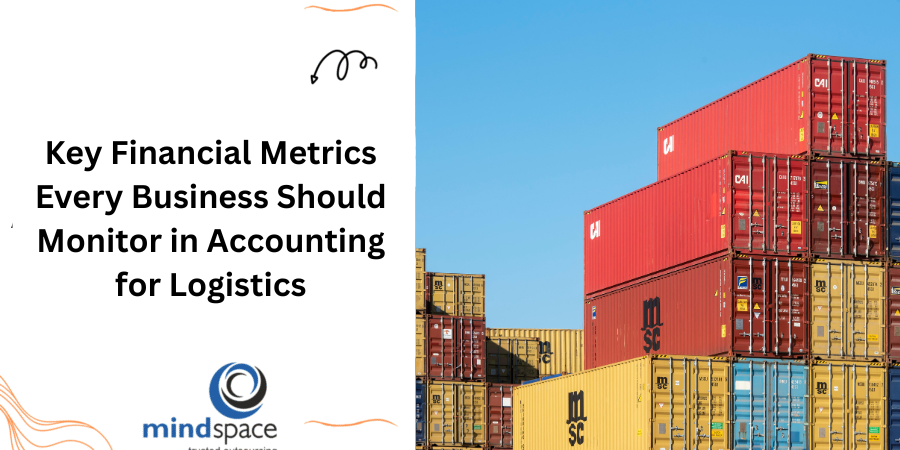Key Financial Metrics Every Business Should Monitor in Accounting for Logistics
Efficient logistics operations depend not only on moving goods but also on monitoring the right financial indicators. In an industry where margins are often tight, tracking performance through precise financial data becomes crucial. Businesses that adopt systematic logistics accounting gain clarity over costs, revenue streams, and long-term profitability.
Below are the essential financial metrics every logistics company should track to maintain control and plan growth effectively.
Why Are Financial Metrics Important in Accounting for Logistics?
Financial metrics act as a dashboard for business performance. For logistics firms, they highlight the efficiency of transportation, warehousing, and delivery operations while keeping a check on profitability. With structured accounting for logistics, businesses gain real-time insights to avoid revenue leakages and manage risks.
1. Cash Flow – The Lifeline of Logistics Operations
Cash flow is one of the most important metrics for companies in logistics. Continuous vehicle maintenance, fuel costs, driver wages, and warehousing expenses demand healthy liquidity. Monitoring cash inflows and outflows through dedicated logistics accounting services ensures that operations never stall due to financial shortages.
2. Operating Costs – What Should Be Tracked?
Operating costs in logistics cover multiple areas:
- Transportation and fuel charges
- Insurance premiums
- Equipment maintenance
- Warehouse management expenses
Accurate accounting for logistics helps segment direct and indirect costs, allowing managers to identify areas where cost-cutting or renegotiation with vendors can improve margins.
3. Revenue per Mile – How Profitable Are Routes?
One unique metric in logistics is revenue per mile. It evaluates how much income each route generates compared to costs incurred. By integrating this analysis into logistics accounting, businesses can make decisions about whether to continue, optimize, or discontinue certain routes.
4. Accounts Receivable Turnover – Why Does It Matter?
Delayed payments from clients can disrupt supply chain efficiency. Tracking accounts receivable turnover indicates how quickly invoices are being paid. Logistics accounting services play a vital role here, ensuring invoicing accuracy and reducing payment delays.
5. Cost per Shipment – Are Deliveries Efficient?
Measuring cost per shipment helps determine whether transportation resources are being used optimally. A detailed view of costs, captured through logistics accounting, reveals inefficiencies such as underutilized truck space or unnecessary extra trips
6. Net Profit Margin – Is the Business Truly Profitable?
Revenue alone does not define success. The net profit margin measures profitability after all costs, taxes, and interest. By implementing structured accounting for logistics, businesses can identify whether operations are generating sustainable profit or simply covering costs.
7. Return on Assets – Are Investments Justified?
Logistics firms often invest heavily in trucks, warehouses, and technology. Return on assets evaluates how well these investments are generating profit. Through proper logistics accounting services, companies can assess whether assets are being utilized to their full potential.
8. Fuel Efficiency Metrics – How Much Does Fuel Impact Finances?
Fuel costs are a major expense in logistics. Monitoring fuel efficiency provides valuable insights into route planning, vehicle maintenance, and driver performance. Integrating this data with accounting for logistics helps control one of the most variable expenses in the industry.
9. Compliance and Tax Metrics – Are Regulations Met?
Failure to comply with tax and regulatory requirements can result in penalties. Reliable logistics accounting services ensure that tax obligations, driver wage compliances, and transport permits are tracked accurately, reducing risks of fines or disputes.
Conclusion
Monitoring key financial metrics ensures that logistics companies remain competitive while avoiding unnecessary risks. With structured accounting for logistics, businesses can gain clarity on cash flow, operating costs, profit margins, and asset efficiency. Partnering with professional logistics accounting services such as Mindspace Outsourcing enables companies to strengthen financial control and focus on core logistics operations with confidence.


